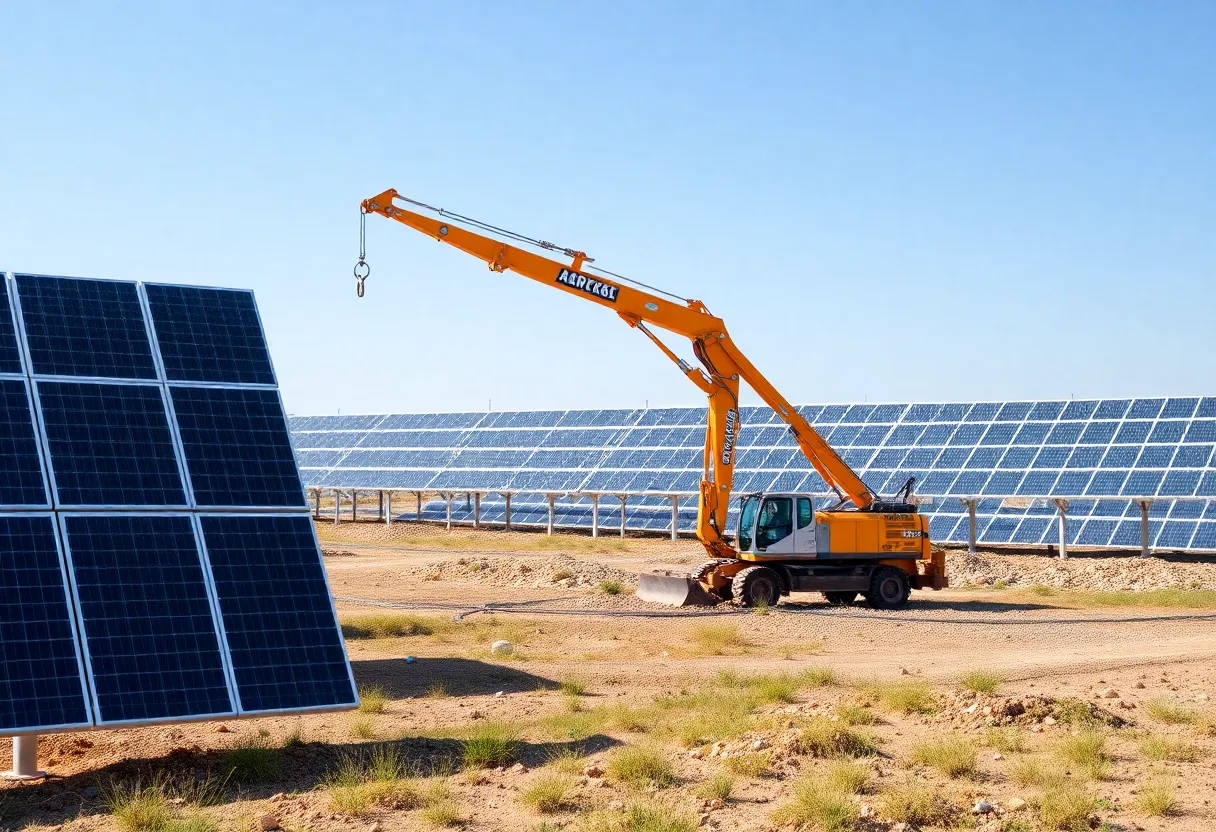News Summary
On May 6, 2025, Pennsylvania lawmakers approved Senate Bill 349, establishing decommissioning standards for solar energy facilities. The bill mandates operators to dismantle and restore solar sites within 18 months of ceasing operations, reinforcing accountability through financial assurance. This legislation aims to unify requirements across the state and address concerns regarding the lack of proper dismantling procedures for solar facilities, ensuring effective land management.
Pennsylvania lawmakers have taken a significant step towards establishing decommissioning standards for solar energy facilities by passing Senate Bill 349 on May 6, 2025. The bill passed overwhelmingly with a vote of 49-1 and has been referred to the House Environmental and Natural Resource Protection Committee for further consideration.
This legislation, officially titled “An Act Amending Title 27 (Environmental Resources) of the Pennsylvania Consolidated Statutes,” is designed to create consistent requirements for the decommissioning of solar energy sites, which currently lack a statewide protocol. The absence of regulated decommissioning raises concerns that when solar facilities cease operation, operators may have little motivation to dismantle and restore the land.
Senate Bill 349 aims to hold operators accountable by mandating that decommissioning must occur within 18 months after a facility stops generating electricity. To facilitate this accountability, the bill introduces requirements for financial assurance associated with decommissioning, ensuring that operators demonstrate they can fund the required procedures.
The bill outlines several key components that solar energy facility agreements must incorporate, including proof of financial assurance for decommissioning, which may involve surety bonds or other financial instruments. New solar project operators must submit decommissioning plans and financial assurance proof before initiating construction. Additionally, they must reassess and provide updated financial assurance every five years and hire a third-party professional engineer from an approved list to estimate decommissioning costs.
A notable feature of Senate Bill 349 is its role in unifying the standards for decommissioning across Pennsylvania, superseding varying local ordinances and lease agreements that currently govern these operations. By establishing uniform rules, the legislature aims to simplify processes and enhance accountability in managing solar facilities.
The Pennsylvania Department of Environmental Protection will oversee the implementation of these decommissioning standards by creating a standardized form for decommissioning plans in collaboration with the solar energy sector. The decommissioning plans must detail necessary actions, such as equipment removal, roadway elimination, land re-contouring, and soil replacement. The legislation also includes a provision that new operators must maintain financial assurances until any existing obligations of their predecessors are cancelled.
While Senate Bill 349 has gained support from stakeholders like the Pennsylvania Farm Bureau and various solar associations, it is not without its criticisms. Concerns have been raised regarding the defined role of county recorders of deeds in overseeing the decommissioning plans and the consequences for lease agreements that do not include decommissioning stipulations. There is also apprehension regarding potential discrepancies between decommissioning values assessed by landowners and those calculated by the required third-party engineers.
The swift advancement of Senate Bill 349 distinguishes it from other solar energy-related bills in the state, suggesting a growing recognition of the need for a comprehensive framework governing energy facility decommissioning. By addressing the practical needs for financial accountability and operational clarity, the bill aspires to balance the growth of renewable energy initiatives with the responsibilities towards landowners impacted by such projects.
If fully enacted, Senate Bill 349 will usher in a new era of regulation for solar energy facilities in Pennsylvania, compelling operators to adopt a more responsible approach to land management after their facilities cease operations. As the bill moves forward, its implications will be closely monitored by various stakeholders within the energy sector and the broader community.
Deeper Dive: News & Info About This Topic
- JD Supra: Pennsylvania Solar Energy Facility
- Wikipedia: Solar Energy
- Centre Daily: Opinion on Solar
- Google Search: Pennsylvania Solar Energy Bill
- North Central PA: Solar Power Responsibility Bill
- Google Scholar: Pennsylvania Solar Energy Policy
- Beaver County Radio: Bill on Drinking Water
- Encyclopedia Britannica: Renewable Energy

Author: STAFF HERE PHILADELPHIA WRITER
The PHILADELPHIA STAFF WRITER represents the experienced team at HEREPhiladelphia.com, your go-to source for actionable local news and information in Philadelphia, Philadelphia County, and beyond. Specializing in "news you can use," we cover essential topics like product reviews for personal and business needs, local business directories, politics, real estate trends, neighborhood insights, and state news affecting the area—with deep expertise drawn from years of dedicated reporting and strong community input, including local press releases and business updates. We deliver top reporting on high-value events such as Mummers Parade, Philadelphia Flower Show, and Thanksgiving Day Parade. Our coverage extends to key organizations like the Greater Philadelphia Chamber of Commerce and United Way of Greater Philadelphia, plus leading businesses in telecommunications, food services, and healthcare that power the local economy such as Comcast, Aramark, and Children's Hospital of Philadelphia. As part of the broader HERE network, we provide comprehensive, credible insights into Pennsylvania's dynamic landscape.





